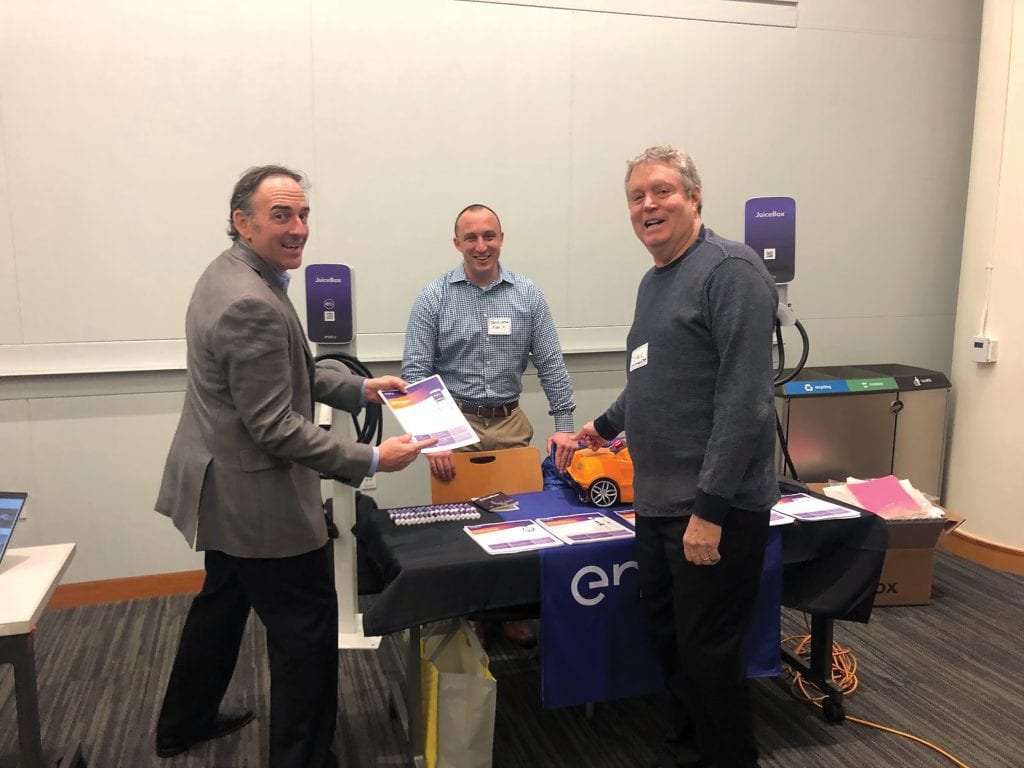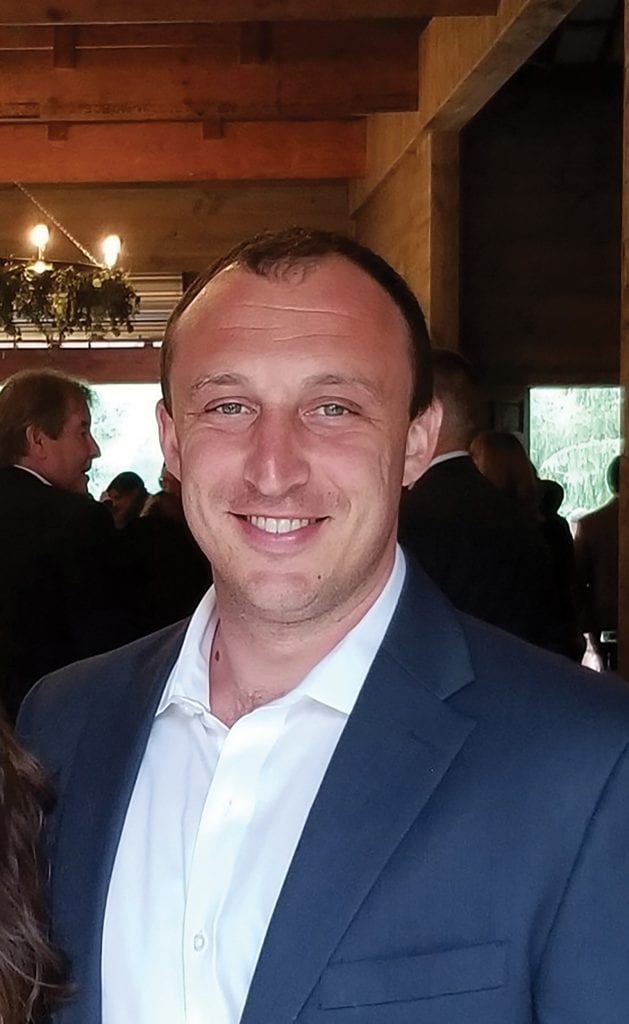A sustainable energy advocate, Jared Carson (’08) is in the future-selling business—one major corporation, one bank of electric vehicle charging stations at a time.
Currently, Carson works for sustainable energy giant Enel, in their Enel X e-Mobility division. There, as an account executive, he helps corporations think broadly about their ecological footprint with an aim of helping them to future-proof their operations.
Carson’s commitment to environmental sustainability is a passion that he traces back to his time at Cary Academy. More specifically, he credits Upper School science teacher Heidi Maloy’s Advanced Environmental Studies class as inspiring his future career path.
“I didn’t fully realize it at the time, but that class connected the dots for me between the actions we take as individuals and the ecological world around us. It made me understand that small impacts matter—they add up. It made tangible the many impacts the built environment has on the world,” muses Carson. “It was definitely a launching point to my career.”
His CA launch would ultimately set him on a trajectory that would result, first, in a degree from North Carolina State University in Environmental Technology and Management, and later, a graduate certificate from the University of Boulder in Renewable Energy.
After graduation, Carson jumped into his job search, only to discover a remarkably volatile industry. “Clean energy was still in its early days; the industry was emerging and disruptive,” he explains. “Even with IPOs, companies’ corporate strategies weren’t baked. I had to change jobs multiple times. And after every leap I made, shortly thereafter, the team I had been on was dissolved.”
Leveraging primarily wind and solar power, Enel is one of the largest sources of renewable energy in the world and a major electric utility in Europe. Enel-X is their North American-based venture arm, focusing on retail sustainability solutions for consumers. “Enel-X is focused on distributed-energy solutions on the retail side of the electric meter,” explains Carson.
And just what are distributed-energy solutions? Carson says they are disruptive innovations—including solar arrays, battery storage, and electric vehicle charging stations—that have shifted how electricity is both generated and delivered. Together, they point to a more sustainable energy future.
“Energy was once mostly produced at large power plants, using unsustainable sources such as coal and nuclear,” explains Carson. “Electricity had to travel great distances across the grid before arriving at the point of consumption.” And that translated to unsustainable, polluting, inefficient, and expensive energy.
Increasingly, however, more sustainable, green, distributed solutions are allowing for the decentralization of energy generation, spreading it across the grid. “Like, solar panels on a roof,” Carson offers as an example, “they generate electricity close to where it is consumed.”

And that proximity is important. It’s both greener and more efficient. Thanks to a reduction of electricity loss that would otherwise occur during long distance travel across the grid, as well as decreased infrastructure and upkeep costs, distributed solutions help to lower energy costs. The result? Smaller sustainable solutions that are increasingly scalable to new markets and affordable to new audiences.
Within Enel X’s e-Mobility division, Carson’s personal focus is on sustainable transportation. He’s responsible for lead generation and account management among Fortune 1,000 companies for Enel’s electric vehicle charging stations. It’s an exciting, future-oriented position that is not without its challenges.
“As much as vehicle charging stations are innovative—they aren’t always the most intuitive solution. People don’t get out of bed thinking about them, about why they might be important for the future,” he continues. “Where some of my clients are located, they may not even have electric vehicles on the road yet. Regardless, my role is to convince them that they need to plan for them, that they should take action now.”
He does so through a mix of storytelling, education, and salesmanship, crafting pitches that paint a compelling vision of the future, that offer connection to municipal programs to offset costs, and which relate green solutions to topics that are relevant to the target companies. That picture is getting a bit easier to paint thanks to some exciting new entrants to the electric automotive market.
“In the near future, there are innovative electric cars coming into the market from major automotive makers—from Ford, Chevy, Audi. It isn’t just Tesla anymore. And it isn’t just confined to California and the Northeast,” explains Carson. “Electric vehicles are on the cusp of turning mainstream.”
It’s an exciting time, with every pitch, every sale representing one of those small impacts that, together, add up to something transformative: a reframed conversation around energy use and the opportunity to carve out a better, more sustainable future. And that’s Carson’s true motivation.
“I don’t see a future scenario where we aren’t talking about electric vehicles. And that means we have to retrain people in thinking about how they get electricity and power” offers Carson. “We can’t continue to sustain conventional models of providing energy for the billions of people on the planet. We must become more innovative, more sustainable. Candidly? It’s just the right thing to do.”

